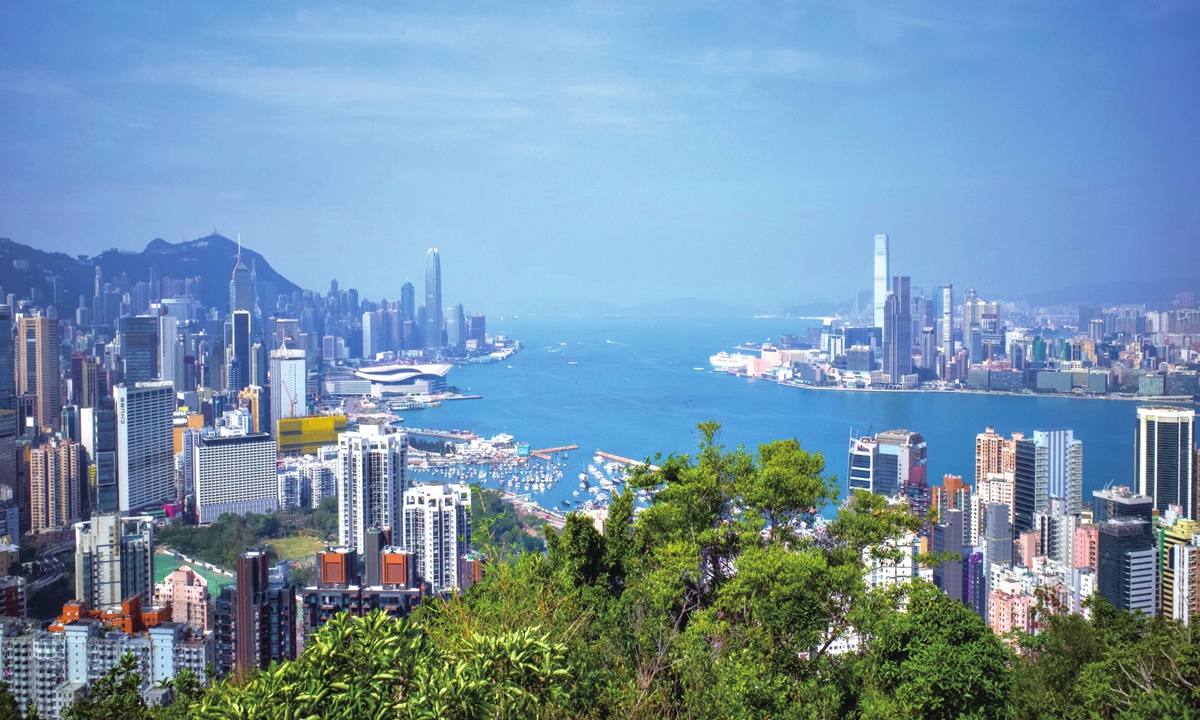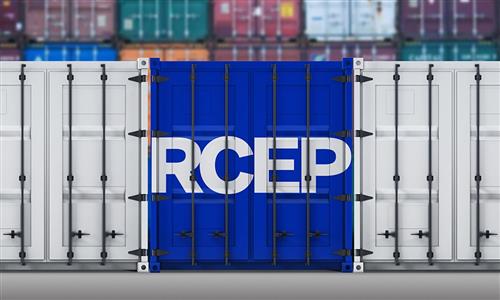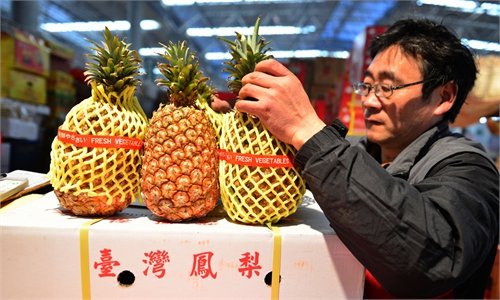
A general view of the Victoria Harbor in the Hong Kong Special Administrative Region, on February 13 Photo: VCG
The customs of the Hong Kong Special Administrative Region (HKSAR) further extended the scope of service of the Free Trade Agreement Transshipment Facilitation Scheme (FTA Scheme) to cover transshipments from the Chinese mainland to Vietnam and Nicaragua via the HKSAR, and from Serbia via the HKSAR to the mainland, per a statement the customs released on Sunday.Upon the extension, local traders can apply for a certificate of non-manipulation, which certifies that transshipment cargo has not undergone any further processing during their stay in Hong Kong, to claim a preferential tariff under related FTAs and preferential trade agreements between the Chinese mainland and other countries and regions, such as the Regional Comprehensive Economic Partnership Agreement.
The scope of service of Hong Kong's FTA Scheme originally covers shipments of 68 economies under 20 trade agreements signed between the mainland and its trading partners to be transshipped northbound via Hong Kong to the mainland, and mainland transshipment cargoes heading southbound via Hong Kong for the island of Taiwan, as well as South Korea, Singapore and Australia under seven trade agreements.
"Such arrangements have multiple positive effects on Hong Kong's economy. For starters, they strengthen the logistics and transportation sectors, further reinforcing Hong Kong's role as an international logistics hub," Liang Haiming, chairman of Hong Kong-based China Silk Road iValley Research Institute, told the Global Times on Sunday.
Offering tariff incentives will attract more international transactions through Hong Kong. It makes Hong Kong more competitive in the global trade network by simplifying customs procedures and improving efficiency, Liang said.
Global Times


